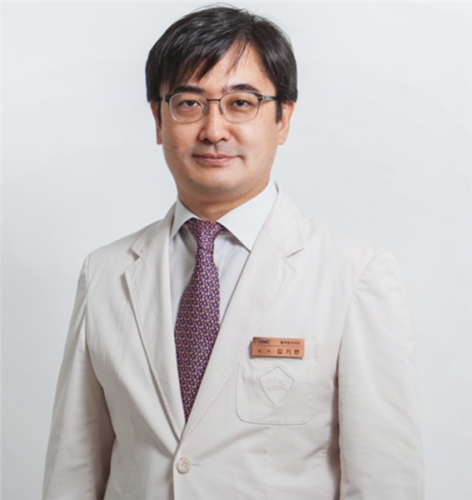Kim Ki-Hyun (Samsung Medical Center), chairman of the Multiple Myeloma Research Committee at the Korean Society of Hematology
Multiple myeloma (MM) is a blood cancer in which malignant plasma cells proliferate abnormally in the bone marrow, characterized by symptoms such as lytic bone lesions, anemia, hypercalcemia, kidney failure, and infections due to immunosuppression.
The average age of MM diagnosis is about 67 years old, and the incidence and prevalence of the disease are increasing due to the aging population.

Previously, MM was a rare and incurable blood cancer with a median survival of two to three years, with most patients relapsing despite treatment.
Fortunately, however, many new anti-cancer drugs have been developed over the past 20 years, improving survival rates. In Korea, those new drugs are reporting twice longer survival.
Drugs developed after 2000 such as immunomodulators (thalidomide, lenalidomide, and pomalidomide), proteasome inhibitors (bortezomib, capilizumab, and ixazomib), and monoclonal antibodies (daratumumab and isatuximab) are the mainstays of treatment currently.
More recently, CAR-T cell therapies, which modify T-cells to match antigens on myeloma cells to enhance their ability to attack the cells, and bispecific antibodies, which link T-cells to myeloma cells to enhance the T-cell's ability to attack, have been developed against a variety of myeloma cell-specific antigens, including BCMA, GPRC5D, and FcRH5.
Some CAR-T therapies and heterologous antibodies have been approved by the U.S. Food and Drug Administration (FDA) and are awaiting approval from the Ministry of Food and Drug Safety in Korea.
Clinical studies of the latest therapies in patients who have failed conventional immunomodulators, proteasome inhibitors, and monoclonal antibodies showed good response and survival, and have been approved for these patients.
In addition, many clinical trials have recently been conducted in patients with early relapse using these agents alone or in combination with other existing agents, and studies have begun in newly diagnosed MM patients. The results of these trials could lead to a paradigm shift in the treatment of MM.
Of course, there are various adverse reactions associated with these therapies, including cytokine release syndrome, neurological side effects, and immunosuppression, but researchers are finding ways to overcome them.
Despite many advances over the past two decades, most patients with MM still relapse repeatedly, develop drug resistance, and become increasingly malignant.
Given the nature of MM, the development of these new immunotherapies offers new hope for patients and families living with the disease.
I wish them all the best and hope I could help deliver good clinical trial results.
This contribution was originally published in Korea Healthlog, a sister paper of Korea Biomedical Review, on March 30, 2023. -- Ed.

